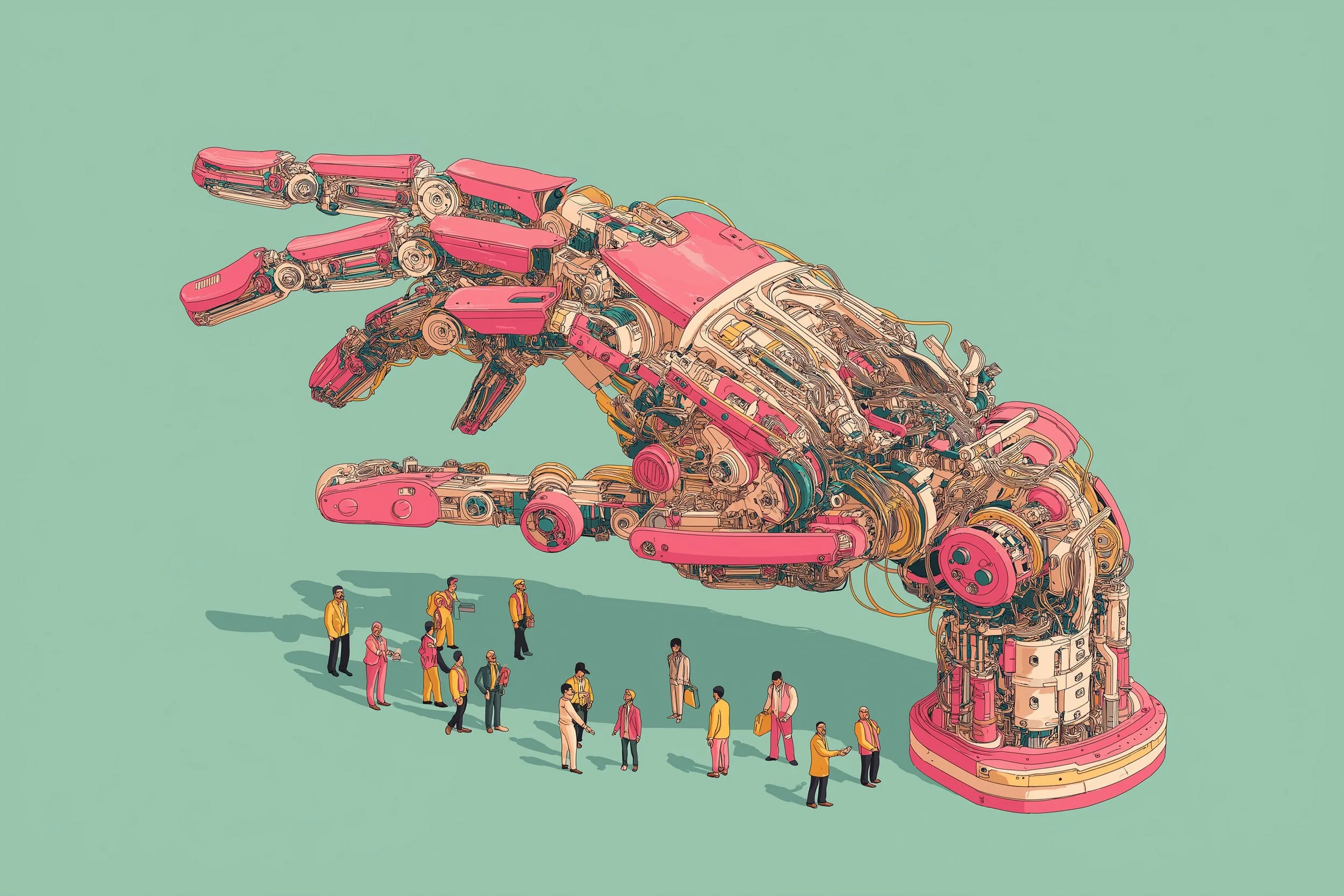Async agile 1.0, is distributed agile 2.0!
This blog expands on the ideas from “The Async-First Playbook”. You can either browse through the posts using the grid below, or start at the very beginning. Alternatively, use the search bar below to find content across the site.
AI-powered enshittification
AI is a now a significant contributor to the broader trend of enshittification. The market is full of AI-powered products, features and code that are costlier to use and run and often counter productive for the end users.
AI and the scarcity loop
The unpredictable nature of generative AI can often feel as addictive as gambling. Addictive services often get enshittified, and can also be candidates for a classic bait-and-switch.
The trouble with AI overconfidence
As the circular funding economy of AI becomes more transparent, innovation slows and costs increase, it may help us all to temper our AI enthusiasm. There are many indications that the current state of generative AI is neither essential nor as transformative as the frontier AI companies will have us believe. If anything we could make the case that generative AI is a net negative for most stakeholders.
AI bipolarity
I’m “AI bipolar” - an enthusiast and a sceptic. Here are some of the reasons I blow hot and cold with AI.
The puzzle that is AI success
Enterprise AI pilots have a 95% rate of failure. Could it be that people have experiment fatigue and that companies are taking a piecemeal approach to AI innovation?
The exploitative potential of AI
AI has many productivity benefits, but those benefits may only accrue towards corporations who now have new tools to exploit workers.
10 characteristics of the AI-first knowledge worker
AI is coming for many jobs. Bullshit jobs will be the first to go. Those of us with a real job must cultivate a few characteristics to be AI-first in the way we work and stay relevant in the job market.
The agentic enterprise will get worse before it gets better
Before companies seize productivity advantages through agentic AI, they’ll have to contend with a messy period of agent sprawl, poor design choices and inefficient workflows. When the dust settles, success won’t just be about the ease of agent building. The companies that succeed will most likely prioritise thoughtful design and problem solving, and find clever ways to balance bottom-up innovation with lightweight governance.
AI transformation is a human-first, not tech-first change
AI transformation is more about behaviour change than technological change. Job insecurity, misaligned incentives, incompatible work environments and fragmented work systems can be impediments to this new way of working.
AI and the perpetual beta mindset
AI is rarely perfect or production-ready. Working with AI means embracing a perpetual beta mindset. And perpetual betas always need humans in the loop.
The new knowledge managers are consultants, not librarians
The days of manually curating and organising company knowledge will soon be behind us. Knowledge managers can’t operate as librarians anymore. They must, instead, elevate their AI literacy, implement an AI-first KM stack and deploy themselves as consultants to implement knowledge-enabled workflows.
On precise imperfections
In the age of AI-generated outputs, there’s still room for the glorious unpredictability of being human.
RTO mandates and the AI epiphany
If AI-first knowledge work benefits from a new way of organising, is an RTO-mindset a limiting factor for succeeding in the AI age?
AI, async, and the end of bloated teams
The AI-first software development revolution will also change how we collaborate. I argue that async-first collaboration is the perfect companion to AI-first development.
The limits of AI in 2025
Fresh off a snow leopard expedition, I reflect on the accelerating power—and persistent limits—of artificial intelligence.
These three dysfunctions will stall your AI transformation
AI transformation isn’t only about building or buying new systems. New technology often faces systemic inanities in legacy organisations.
The perfect storm for AI disruption
There are widespread concerns about how AI will disrupt employment and render many people jobless. I argue that jobs that involve routine, non-novel, and acceptably risky knowledge work will be prime candidates for such disruption.
Knowledge management in an age of AI
AI has disrupted our search and content creation experience. To recognise this shift, Nagarjun Kandukuru and I have written an AI-first KM manifesto, which we’d like to introduce to you.




















